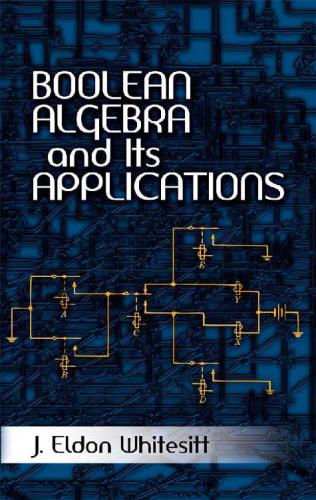

Most ebook files are in PDF format, so you can easily read them using various software such as Foxit Reader or directly on the Google Chrome browser.
Some ebook files are released by publishers in other formats such as .awz, .mobi, .epub, .fb2, etc. You may need to install specific software to read these formats on mobile/PC, such as Calibre.
Please read the tutorial at this link: https://ebookbell.com/faq
We offer FREE conversion to the popular formats you request; however, this may take some time. Therefore, right after payment, please email us, and we will try to provide the service as quickly as possible.
For some exceptional file formats or broken links (if any), please refrain from opening any disputes. Instead, email us first, and we will try to assist within a maximum of 6 hours.
EbookBell Team

5.0
50 reviewsThis introduction to Boolean algebra explores the subject on a level accessible even to those with a modest background in mathematics. The first chapter presents the algebra of sets from an intuitive point of view, followed by a formal presentation in chapter two of Boolean algebra as an abstract algebraic system, with no reference to applications.
Succeeding chapters offer concise accounts of applications to symbolic logic, focusing on topics of logic common to elementary mathematics and discussing concepts of valid argument and indirect proofs. Additional topics include the algebra of circuits — switching, relay, and computer — as well as the application of the algebra of sets to probability theory. Problems appear throughout the text, with answers to selected problems at the end of the book. Geared toward students of mathematics, computer science, and electrical engineering, this text can be appreciated by anyone who understands college-level mathematics. It will prove particularly valuable to philosophy students and others wishing to study symbolic logic and its applications to computer science.
**
About the AuthorA mathematics professor at Montana State University, J. Eldon Whitesitt received his doctorate from the University of Illinois, Urbana-Champaign. He is the author of several algebra texts published by Addison-Wesley.